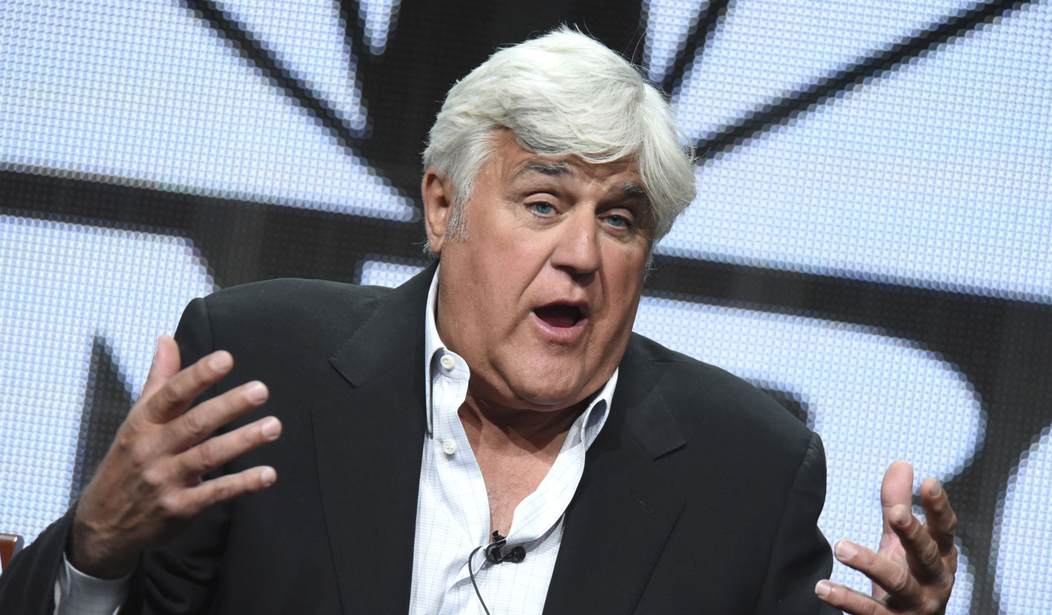In an era when the once-unifying force of late-night television has sunk into a swamp of political grandstanding, former “Tonight Show” host Jay Leno stands alone as a voice of reason among the chaos. While today's late-night comics guzzle the leftist Kool-Aid and alienate half their potential audience with non-stop jabs at President Trump while using their platform to promote Democrat talking points, Leno takes a clear-eyed look at what's gone wrong in the genre he once dominated.
Leno, who helmed “The Tonight Show” without making his viewers feel like outsiders for their political beliefs, recently took late-night hosts to task for transforming their stages into sermon pulpits for the left. His courage to speak this truth stands in stark contrast to the industry's prevailing groupthink.
“Why shoot for just half an audience all the time? You know, why not try to get the whole?” he said in an interview with Ronald Reagan Presidential Foundation CEO David Trulio.
"I always felt it was my job to make the audience laugh, not to lecture them," he stated, recalling how previous generations of comedians "never wanted to make half the country feel unwelcome in their own living rooms." Jay Leno understood the power of a good laugh—one that everyone could share, regardless of whom they pulled the lever for in November.
The consequences of late-night's political obsession became crystal clear this month when CBS axed Stephen Colbert's "Late Show" after eleven years because it was costing the network too much money. It was also declining in the ratings.
ICYMI: 'I’ll Never Be the Same': Bongino Dishes on FBI Secrets That Shook Him
And then there’s David Letterman, the former “Late Show” host who saw Colbert run his legacy into the ground. Letterman called CBS's move "pure cowardice," suggesting the cancellation came from pressure to appease the Trump administration. What cowardice, Dave? The cowardice was transforming comedy into political activism in the first place. Letterman's defense of Colbert reveals how thoroughly the entertainment establishment has lost its way, mistaking partisan hackery for brave truth-telling.
This represents everything wrong with Hollywood's current mindset. Letterman, who once commanded respect across the political spectrum with his irreverent humor, now champions the very divisiveness that destroyed late-night's broad appeal—and the legacy of his “Late Show” along with it. His reflexive assumption that business decisions must be politically motivated exposes the industry's inability to accept that audiences simply rejected their product.
Compare Letterman’s knee-jerk defense of Colbert to Jay Leno’s clear-eyed take on what really sank the show. While Letterman reflexively shields a fellow liberal host and clings to the fantasy that Colbert’s problem was anything but ideological, Leno cuts to the heart of it: Colbert alienated half the country on purpose. He stopped being a comedian and turned into a smug political operative with a laugh track.
Leno, by contrast, thrived in an era when late-night hosts didn’t see their audience as opponents to be conquered. He made fun of Clinton and Bush with equal punch, and no one had to guess where he stood politically—because it didn’t matter. The jokes came first, not the tribal signaling. That’s why viewers trusted him, and why Leno won the late night wars with Letterman.










